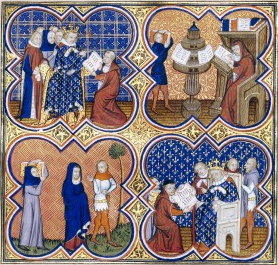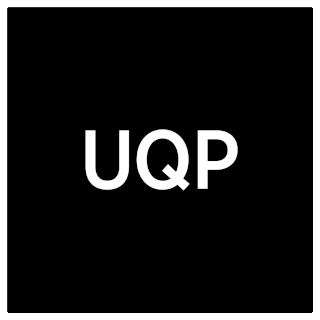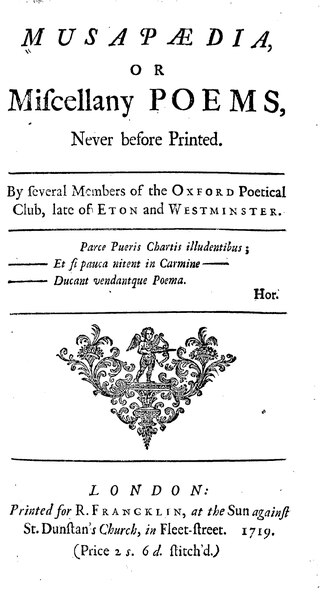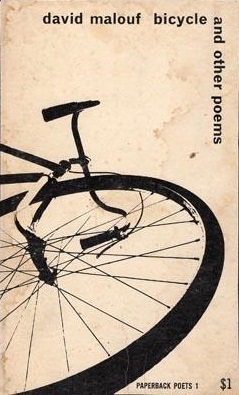Related Research Articles

Poetry, also called verse, is a form of literature that uses aesthetic and often rhythmic qualities of language − such as phonaesthetics, sound symbolism, and metre − to evoke meanings in addition to, or in place of, a prosaic ostensible meaning. A poem is a literary composition, written by a poet, using this principle.
Prose is a form of written or spoken language that follows the natural flow of speech, uses a language's ordinary grammatical structures, or follows the conventions of formal academic writing. It differs from most traditional poetry, where the form consists of verse based on rhythmic metre or rhyme. The word "prose" first appears in English in the 14th century. It is derived from the Old French prose, which in turn originates in the Latin expression prosa oratio.

A narrative, story, or tale is any account of a series of related events or experiences, whether nonfictional or fictional. Narratives can be presented through a sequence of written or spoken words, through still or moving images, or through any combination of these. The word derives from the Latin verb narrare, which is derived from the adjective gnarus. The formal and literary process of constructing a narrative—narration—is one of the four traditional rhetorical modes of discourse, along with argumentation, description, and exposition. This is a somewhat distinct usage from narration in the narrower sense of a commentary used to convey any written narrative. Many additional narrative techniques, particularly literary ones, are used to build and enhance any given story.
Russian formalism was a school of thought literary theory in Russia from the 1910s to the 1930s. It includes the work of a number of highly influential Russian and Soviet scholars such as Viktor Shklovsky, Yuri Tynianov, Vladimir Propp, Boris Eichenbaum, Roman Jakobson, Boris Tomashevsky, Grigory Gukovsky who revolutionised literary criticism between 1914 and the 1930s by establishing the specificity and autonomy of poetic language and literature. Russian formalism exerted a major influence on thinkers like Mikhail Bakhtin and Juri Lotman, and on structuralism as a whole. The movement's members had a relevant influence on modern literary criticism, as it developed in the structuralist and post-structuralist periods. Under Stalin it became a pejorative term for elitist art.

A literary genre is a category of literature. Genres may be determined by literary technique, tone, content, or length. They generally move from more abstract, encompassing classes, which are then further sub-divided into more concrete distinctions. The distinctions between genres and categories are flexible and loosely defined, and even the rules designating genres change over time and are fairly unstable.

Spanish literature generally refers to literature written in the Spanish language within the territory that presently constitutes the Kingdom of Spain. Its development coincides and frequently intersects with that of other literary traditions from regions within the same territory, particularly Catalan literature, Galician intersects as well with Latin, Jewish, and Arabic literary traditions of the Iberian peninsula. The literature of Spanish America is an important branch of Spanish literature, with its own particular characteristics dating back to the earliest years of Spain’s conquest of the Americas.

Australian literature is the written or literary work produced in the area or by the people of the Commonwealth of Australia and its preceding colonies. During its early Western history, Australia was a collection of British colonies; as such, its recognised literary tradition begins with and is linked to the broader tradition of English literature. However, the narrative art of Australian writers has, since 1788, introduced the character of a new continent into literature—exploring such themes as Aboriginality, mateship, egalitarianism, democracy, national identity, migration, Australia's unique location and geography, the complexities of urban living, and "the beauty and the terror" of life in the Australian bush.

David George Joseph Malouf AO is an Australian poet, novelist, short story writer, playwright and librettist. Elected a Fellow of the Royal Society of Literature in 2008, Malouf has lectured at both the University of Queensland and the University of Sydney. He also delivered the 1998 Boyer Lectures.

Restoration literature is the English literature written during the historical period commonly referred to as the English Restoration (1660–1689), which corresponds to the last years of Stuart reign in England, Scotland, Wales, and Ireland. In general, the term is used to denote roughly homogenous styles of literature that centre on a celebration of or reaction to the restored court of Charles II. It is a literature that includes extremes, for it encompasses both Paradise Lost and the Earl of Rochester's Sodom, the high-spirited sexual comedy of The Country Wife and the moral wisdom of The Pilgrim's Progress. It saw Locke's Treatises of Government, the founding of the Royal Society, the experiments and holy meditations of Robert Boyle, the hysterical attacks on theatres from Jeremy Collier, and the pioneering of literary criticism from John Dryden and John Dennis. The period witnessed news becoming a commodity, the essay developing into a periodical art form, and the beginnings of textual criticism.

Leslie Allan Murray was an Australian poet, anthologist, and critic. His career spanned over 40 years and he published nearly 30 volumes of poetry as well as two verse novels and collections of his prose writings.

Fly Away Peter is a 1982 novel by Australian author David Malouf. It won The Age Book of the Year award in 1982, and is often studied at senior level in Australian high schools.
Verisimilitude is the "lifelikeness" or believability of a work of fiction. The word comes from Latin: verum meaning truth and similis meaning similar. Language philosopher Steve Neale distinguishes between two types: cultural verisimilitude, meaning plausibility of the fictional work within the cultural and/or historical context of the real world, outside of the work; and generic verisimilitude, meaning plausibility of a fictional work within the bounds of its own genre.
The history of literature of the early modern period, or early modern literature, succeeds Medieval literature, and in Europe in particular Renaissance literature.

Translation is the communication of the meaning of a source-language text by means of an equivalent target-language text. The English language draws a terminological distinction between translating and interpreting ; under this distinction, translation can begin only after the appearance of writing within a language community.

Literature is any collection of written work, but it is also used more narrowly for writings specifically considered to be an art form, especially prose, fiction, drama, poetry, and including both print and digital writing. In recent centuries, the definition has expanded to include oral literature, also known as orature much of which has been transcribed. Literature is a method of recording, preserving, and transmitting knowledge and entertainment, and can also have a social, psychological, spiritual, or political role.

Established in 1948, University of Queensland Press (UQP) is an Australian publishing house.
The literature of Kosovo is composed of literary texts written in Albanian, Serbian, Bosnian, and Turkish, specifically by authors of Kosovo. Kosovo produced several prominent writers in the Ottoman era. However, Ottoman authorities banned the written use of the Albanian language until 1912. This policy continued during Serb rule until the outbreak of World War II.

A miscellany is a collection of various pieces of writing by different authors. Meaning a mixture, medley, or assortment, a miscellany can include pieces on many subjects and in a variety of different forms. In contrast to anthologies, whose aim is to give a selective and canonical view of literature, miscellanies were produced for the entertainment of a contemporary audience and so instead emphasise collectiveness and popularity. Laura Mandell and Rita Raley state:
This last distinction is quite often visible in the basic categorical differences between anthologies on the one hand, and all other types of collections on the other, for it is in the one that we read poems of excellence, the "best of English poetry," and it is in the other that we read poems of interest. Out of the differences between a principle of selection and a principle of collection, then, comes a difference in aesthetic value, which is precisely what is at issue in the debates over the "proper" material for inclusion into the canon.

Bicycle and Other Poems (1970) is the debut poetry collection by Australian poet and author David Malouf.
Poetic devices are a form of literary device used in poetry. Poems are created out of poetic devices composite of: structural, grammatical, rhythmic, metrical, verbal, and visual elements. They are essential tools that a poet uses to create rhythm, enhance a poem's meaning, or intensify a mood or feeling.
References
- ↑ The Fontana Dictionary of Modern Thought Second edition, 1986. 448
- ↑ Duwell, Martin (1 July 2007). "David Malouf: Typewriter Music". Australian Poetry Review.
- ↑ "David Malouf's An Open Book is poetry to sit with". The Conversation . 6 November 2018. Retrieved 3 October 2022.
It might be that in a Maloufian world every object and phenomenon of nature takes on a human face just as in ancient Greece the Gods were as human in their impulses, rages and jealousies as any of us are; or it might be that in the Maloufian world we manage to share with nature its relentless, rhythmical inhuman moods.